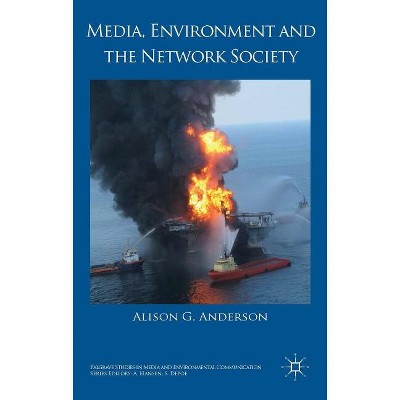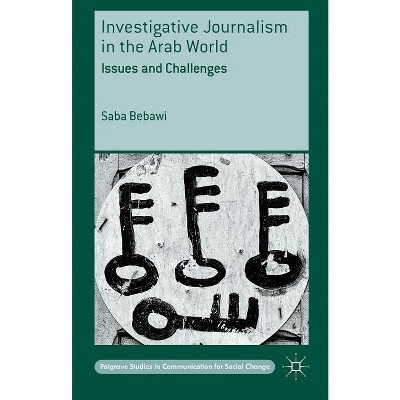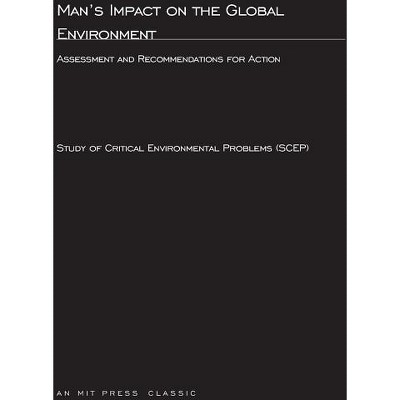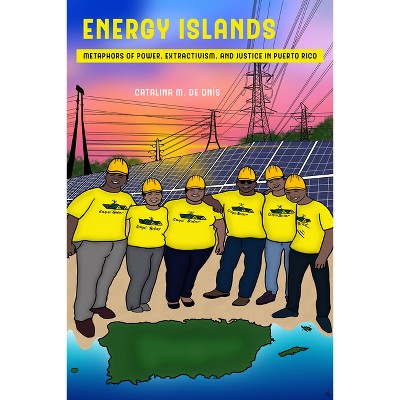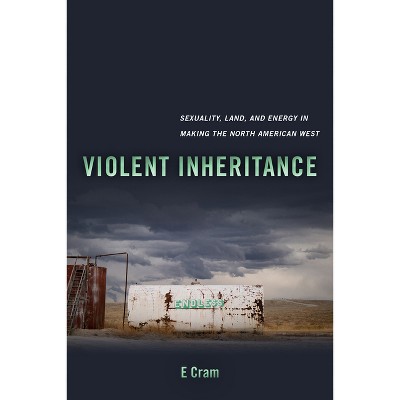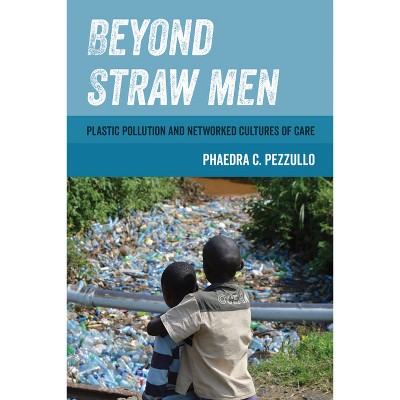Investigative Journalism, Environmental Problems and Modernisation in China - (Palgrave Studies in Media and Environmental Communication) by J Tong

About this item
Highlights
- This book examines how the news media in general, and investigative journalism in particular, interprets environmental problems and how those interpretations contribute to the shaping of a discourse of risk that can compete against the omnipresent and hegemonic discourse of modernisation in Chinese society.
- About the Author: Jingrong Tong is Lecturer at the University of Leicester, UK, and author of Investigative Journalism in China: Journalism, Power, and Society.
- 204 Pages
- Business + Money Management, Environmental Economics
- Series Name: Palgrave Studies in Media and Environmental Communication
Description
About the Book
"Modernisation becomes a hegemonic ideology in Chinese society, while China faces enormous environmental problems. Investigative Journalism, Environmental Problems and Modernisation in China argues that investigative journalism has constructed a discourse of environmental risk that is in contrast with the discourse of modernisation encouraged by Chinese governments for over half a century. By constructing the discourse of environmental risk, investigative journalism exposes the true nature of modernisation on the one hand, and on the other hand, it reveals the connection between social and environmental injustice and inequality. The bifurcation between the two discourses reflects the rift between environment and modernisation as well as the divergence between people and the state. Investigative journalism demonstrates a counter-hegemonic force against the hegemonic discourse of modernisation to a certain extent. The book starts with an overview of the relationship between the emergence of environmental problems and China's modernisation and focuses on the agendas and practices of environmental investigative journalism, the discourse of environmental risk and the challenges and chances offered by the Internet"--Book Synopsis
This book examines how the news media in general, and investigative journalism in particular, interprets environmental problems and how those interpretations contribute to the shaping of a discourse of risk that can compete against the omnipresent and hegemonic discourse of modernisation in Chinese society.Review Quotes
'The environmental disasters that have accompanied China's rapid economic growth are increasingly well known internationally, but the extent to which they are contested by investigative journalists and an emergent civil society are much less studied. Dr Tong has done us a great service in showing how resourceful and courageous reporters have managed to expose the links between corrupt local officials, corner-cutting Chinese entrepreneurs and profit-hungry multinational corporations that have led to many of the worst cases of environmental degradation. Although they have often operated in a space opened by the central government's desire to curb the pollution that threatens to make the very air of China unbreathable, Dr Tong mounts a persuasive case that these journalists have gone beyond simply criticizing the effects of the hectic dash for industrial development. She argues that they have been instrumental in developing a counter-hegemonic ideology of environmental responsibility that challenges the core of the party's current ideology. Her work will be of enormous value to all those interested in China, in the media, and in the global crisis of the environment.' - Colin Sparks, Hong Kong Baptist University
"An important and subtle account of one of the major paradoxes of our times: how can an authoritarian government, some of the world's worst polluters and environmental problems, and a strong tradition of environmental investigative journalism all exist withinone nation? Jingrong Tong begins with an ode to lost landscapes, before revealing how an informed citizenry can invoke government accountability and intervention even at the most unlikely of times." - Libby Lester, University of Tasmania, Australia
"When an expert on investigative journalism writes a book about environmental reporting, the result commands wide attention. Dr. Jingrong Tong's new book shows that in the past two decades, environmental journalists in China have produced a risk discourse with an ambivalent relationship with the interests of the state and the market. Carefully researched and well argued, Tong's analysis of how environmental journalists negotiate their relations with the state, civil society, and online environmental crusaders is full of insights and provocation. This timely and engaging book makes important contributions to the fields of journalism and communication, environmental politics, and studies of contemporary China." - Guobin Yang, University of Pennsylvania, USA
About the Author
Jingrong Tong is Lecturer at the University of Leicester, UK, and author of Investigative Journalism in China: Journalism, Power, and Society.Shipping details
Return details
Trending Non-Fiction






